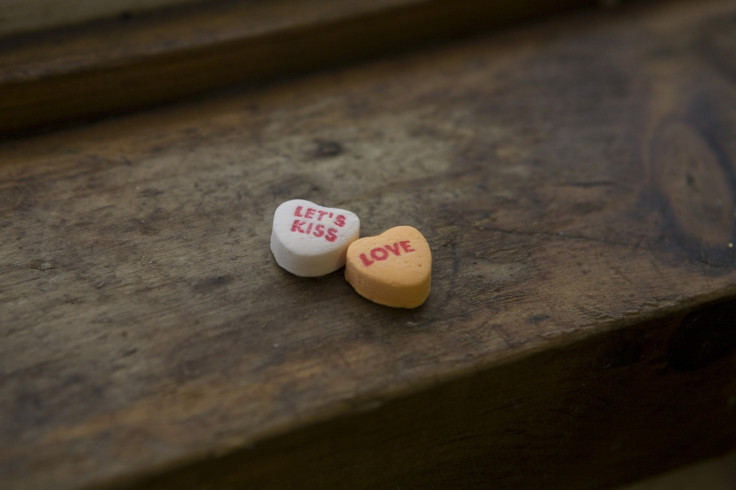The psychedelic renaissance: Can Ecstasy really be used to treat mental illness?

KEY POINTS
- The US and Canada could be three years away from approving MDMA-assisted PTSD therapy.
- Experts at top institutions believe that psychoactive substances could be the future of mental health treatment.
MDMA-assisted psychotherapy may be approved in the US and Canada as soon as 2021. Final round clinical trials are beginning in Vancouver, in the latest chapter of what has been dubbed the "psychedelic renaissance".
Researchers in North America are preparing to launch the third and final stage of trials into whether MDMA – an illegal substance widely associated with club culture under the name Ecstasy – can be safely be used to treat Post-Traumatic Stress Disorder (PTSD) in a controlled medical environment.
If the trials are successful, researchers hope MDMA-assisted therapy could be approved in the US and Canada by 2021. Phase three will involve 150 participants and cost $26m (£15m), Canada's CTV News reported.
The trials are being overseen by the Multidisciplinary Association for Psychedelic Studies (Maps), which has researched the health benefits of psychedelic drugs since the 1980s.
"We hope to prove that MDMA-assisted psychotherapy is the most effective treatment for PTSD that exists on the planet," Mark Haden, a public health professor at the University of British Columbia who founded the Canadian arm of Maps, told CTV News.
He explained that traditional PTSD treatment is based around desensitisation to the triggers – a process that can take years and has just a 10 to 15% chance of success. In contrast, MDMA-assisted therapy can take four months or less, with two thirds of participants reporting no symptoms after a year, according to a preliminary study.
The first trials were so successful that the US Food and Drug Administration (FDA) recognised MDMA as a "breakthrough therapy" for PTSD in August 2017, giving researchers greater powers to investigate the drug further.
But researchers working with Maps aren't the only academics making leaps forward in understanding how drugs with psychoactive substances could be used in healthcare. This has been called the psychedelic renaissance.
What is the psychedelic renaissance?
The term is used to describe the resurgence in research in the past half a decade that indicates that psychedelic drugs, including LSD, MDMA, magic mushrooms, ayahuasca and peyote ibogaine, have beneficial properties when used in a controlled medical environment. Previous research in the 1950s and 1960s was overshadowed by the public profile of academics, and the subsequent banning of hallucinogens in the US, according to science website Massive.
Although not psychoactive, ketamine, used in anaesthesia, also falls into this category.
All of these substances are known as party drugs and researchers do not condone their use outside of a controlled laboratory environment. But it is believed they could treat conditions ranging from PTSD and depression to addiction and cluster headaches.
What have experts found?
Scientists at top US institutions John Hopkins University and NYU published a study in 2016 that said psilocybin, the psychoactive substance in magic mushrooms, could be used to treat depression in cancer patients. Around 80% of participants said their symptoms improved significantly for up to seven months after one dose.
Another study by the the Beckley Foundation, a think-tank dedicated to researching psychoactive substances and drug policy, suggested that psilocybin can help people with depression who are not responsive to commonly used drugs, with 42% of participants reporting having no symptoms after three months of using the substance, The Independent reported.
MDMA, meanwhile, has been linked to reducing social anxiety in a MAPs study, while Katie Anderson, a doctoral researcher in applied sciences at London Southbank University, is currently investigating whether MDMA can be used in couples therapy.
A separate study by the Beckley Foundation used brain imaging to show how the parts of the brain linked to communication are heightened during LSD use.
Some have found these studies so convincing they have gone against medical advice and taken it upon themselves to self-medicate by "micro-dosing" substances such as LSD and magic mushrooms to ease the symptoms of depression and anxiety. Recent books such as Ayelet Waldman's A Really Good Day give an insight into this practice.
However, experts do not condone illegal drug use and the long-term effects of micro-dosing are unknown.
Most psychedelic drugs are illegal and possession can land a person in jail. Dosing is also highly risky, and drugs are often cut with harmful substances.
"The stigma surrounding the subject is falling away, and a serious conversation about psychedelics is no longer completely taboo," Amanda Feilding, the executive director of the Beckley Foundation, told The Independent. "The future is bright, if only we allow it to happen."
How does it work?
Experts are still trying to understand exactly what psychoactive substances do to the brain and the mind.
It is believed that psychedelics boost communication between parts of the brain that generally have little connection, and lower the activity in areas that do, according to a piece by researchers at the University of Cambridge on The Conversation.
Leor Roseman, a member of the Psychedelic Research Group at Imperial College London who led the team behind two 2018 studies into magic mushroom use, commented that psilocybin appears to involve biological changes, as well as the scientific basis for experiences that participants describe as "mystical", according to Medical News Today.






















